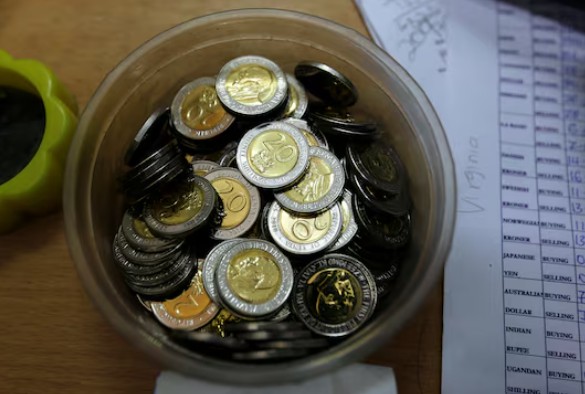New livestock identification system set to combat theft and boost market access

Farmers expect the new system, which will include GPS-enabled air tags for each animal, to provide benefits including access to financial services.
The Kenyan government is planning to introduce a new animal tracking system to reduce livestock theft and enhance traceability.
Livestock owners will soon be required to show identification before selling animals at slaughterhouses, as the Ministry of Agriculture and Livestock Development moves to roll out a nationwide livestock identification and traceability system.
More To Read
- Senate Bill proposes five-year jail term, Sh2 million fine for livestock thieves
- Rift Valley fever: What it is, how it spreads and how to stop it
- Multi-agency team recovers 17 stolen goats in Marsabit, suspect arrested
- Ministry of Agriculture set to launch e-voucher system for livestock vaccination
- Kenya to produce 70 million livestock vaccine doses annually by 2027
- Africans survived 10,000 years of climate change by adapting food systems – Study offers lessons for modern times
Over the past 20 years, Anitrack, the system, has been under development, but its implementation has encountered several challenges.
Principal Secretary Jonathan Mueke said the government is working to finalise the project, which will allow farmers and authorities to track the breed, productivity, and geographic origin of livestock.
This digital system aims to meet the growing global demand for transparency in food sources.
"We are developing a system called Anitrack that will register our animals, track their breed, productivity (such as milk or egg production), and their geographical origins. This will allow us to prove the traceability of livestock products, all the way from the farm to the market," Mueke said.
Farmers expect the new system, which will include GPS-enabled air tags for each animal, to provide benefits including access to financial services.
Collateral for loans
The identification system will allow livestock to be used as collateral for loans, with banks and insurance companies able to access critical data such as vaccination history, breed, and age.
"Thanks to the identification and traceability system, farmers will also be able to access loans, using their livestock as collateral," Mueke said.
"Banks and insurance companies will be able to access critical data about each animal, such as its vaccination history, breed, and age. With this digital identification, animals will become valuable assets," he added.
One of the key features of the new system is its ability to reduce livestock theft, a major concern for farmers across the country.
Director of Livestock Policy, Research, and Regulations at the Ministry of Agriculture Christopher Wanga said the system will make stolen animals easier to track.
Reduce thefts
"People steal livestock to sell them. With this system, stolen animals will be easily identifiable, making them much less attractive to thieves. This initiative will help protect livestock by linking them to their owners. When selling an animal, the ownership must be transferred electronically," Wanga said.
Although the system will not be mandatory, Wanga emphasised its advantages for livestock farmers, especially those running businesses.
"It's not compulsory, but it's a smart practice for anyone raising livestock as a business," he said.
The government's efforts to vaccinate livestock will also continue as the ministry works to finalise the livestock master plan.
Wanga said the identification system will play a crucial role in meeting market demands while reducing theft and ensuring livestock health.
The government plans to engage the public in consultations and scale up animal registration to ensure that more farmers can benefit from the system.
Top Stories Today















































